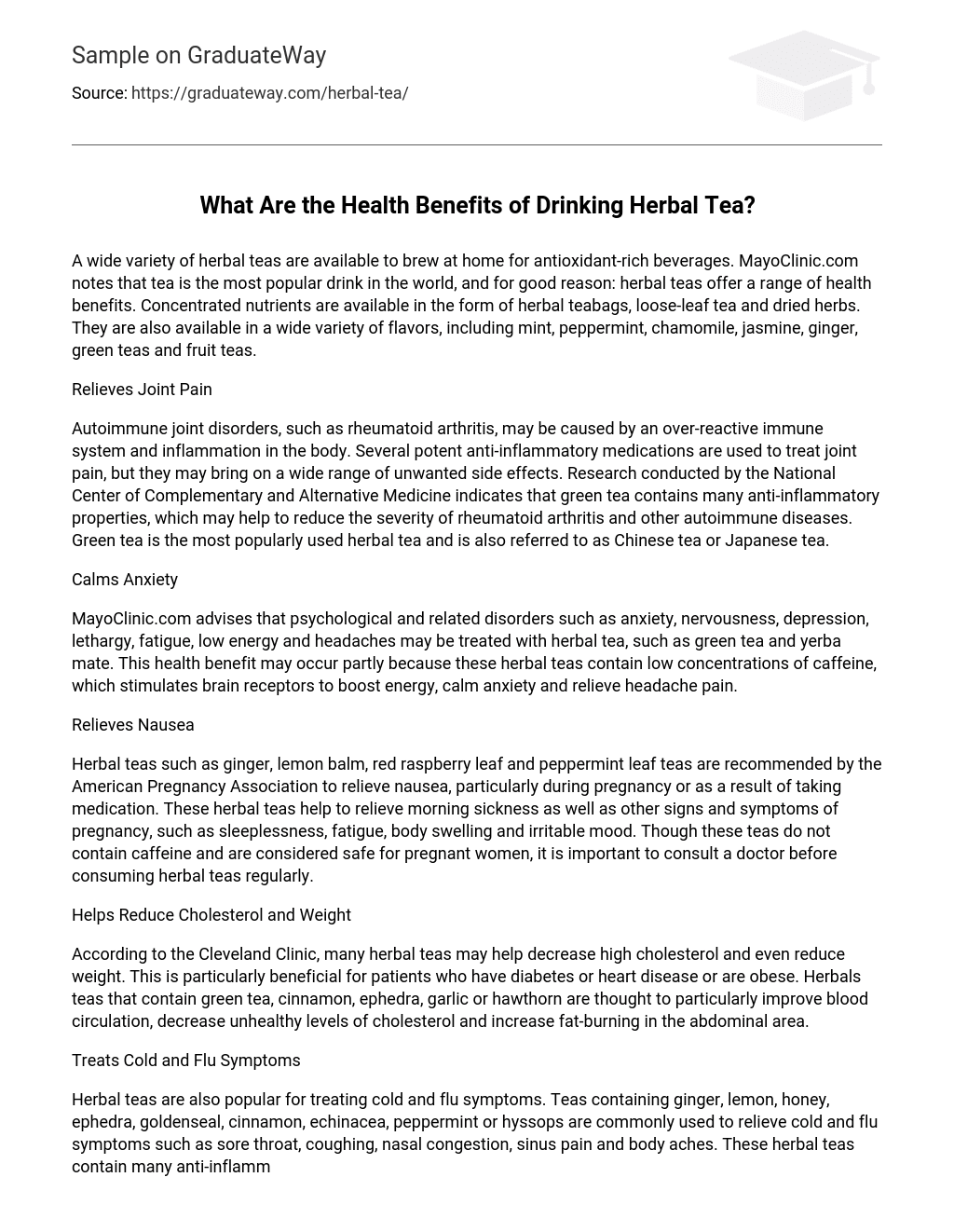A wide variety of herbal teas are available to brew at home for antioxidant-rich beverages. MayoClinic.com notes that tea is the most popular drink in the world, and for good reason: herbal teas offer a range of health benefits. Concentrated nutrients are available in the form of herbal teabags, loose-leaf tea and dried herbs. They are also available in a wide variety of flavors, including mint, peppermint, chamomile, jasmine, ginger, green teas and fruit teas.
Relieves Joint Pain
Autoimmune joint disorders, such as rheumatoid arthritis, may be caused by an over-reactive immune system and inflammation in the body. Several potent anti-inflammatory medications are used to treat joint pain, but they may bring on a wide range of unwanted side effects. Research conducted by the National Center of Complementary and Alternative Medicine indicates that green tea contains many anti-inflammatory properties, which may help to reduce the severity of rheumatoid arthritis and other autoimmune diseases. Green tea is the most popularly used herbal tea and is also referred to as Chinese tea or Japanese tea.
Calms Anxiety
MayoClinic.com advises that psychological and related disorders such as anxiety, nervousness, depression, lethargy, fatigue, low energy and headaches may be treated with herbal tea, such as green tea and yerba mate. This health benefit may occur partly because these herbal teas contain low concentrations of caffeine, which stimulates brain receptors to boost energy, calm anxiety and relieve headache pain.
Relieves Nausea
Herbal teas such as ginger, lemon balm, red raspberry leaf and peppermint leaf teas are recommended by the American Pregnancy Association to relieve nausea, particularly during pregnancy or as a result of taking medication. These herbal teas help to relieve morning sickness as well as other signs and symptoms of pregnancy, such as sleeplessness, fatigue, body swelling and irritable mood. Though these teas do not contain caffeine and are considered safe for pregnant women, it is important to consult a doctor before consuming herbal teas regularly.
Helps Reduce Cholesterol and Weight
According to the Cleveland Clinic, many herbal teas may help decrease high cholesterol and even reduce weight. This is particularly beneficial for patients who have diabetes or heart disease or are obese. Herbals teas that contain green tea, cinnamon, ephedra, garlic or hawthorn are thought to particularly improve blood circulation, decrease unhealthy levels of cholesterol and increase fat-burning in the abdominal area.
Treats Cold and Flu Symptoms
Herbal teas are also popular for treating cold and flu symptoms. Teas containing ginger, lemon, honey, ephedra, goldenseal, cinnamon, echinacea, peppermint or hyssops are commonly used to relieve cold and flu symptoms such as sore throat, coughing, nasal congestion, sinus pain and body aches. These herbal teas contain many anti-inflammatory and antiviral properties.
Promotes Healthy Sleep
Herbal teas are popularly used for facilitating restful sleep and relieving sleep disorders such as insomnia. The National Center for Complementary and Alternative Medicine recommends chamomile, lime blossom, valerian and St. John’s wort herbal teas for treating occasional sleep problems. These teas contain properties that help relax the nervous system, induce sleep and relieve muscle spasms.





